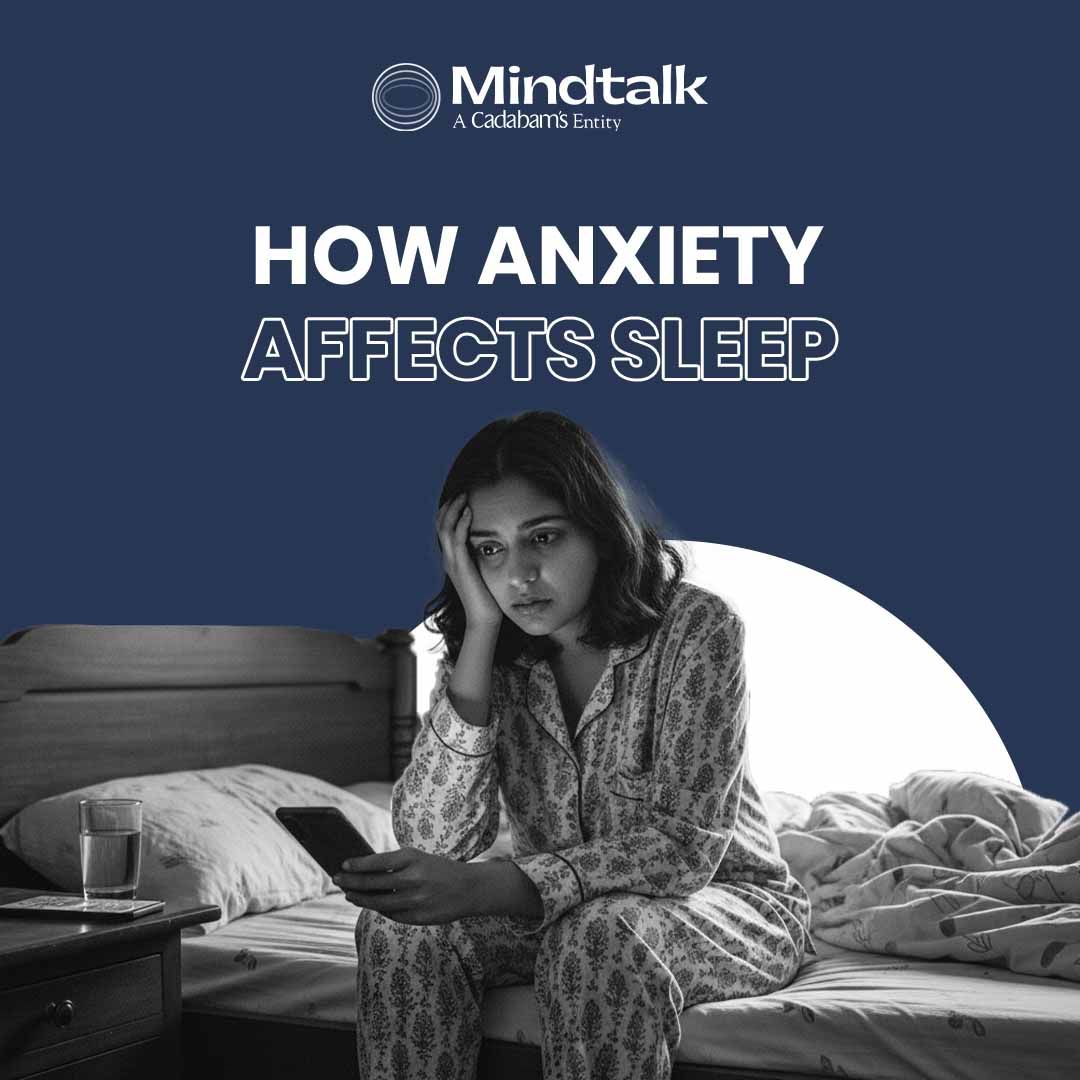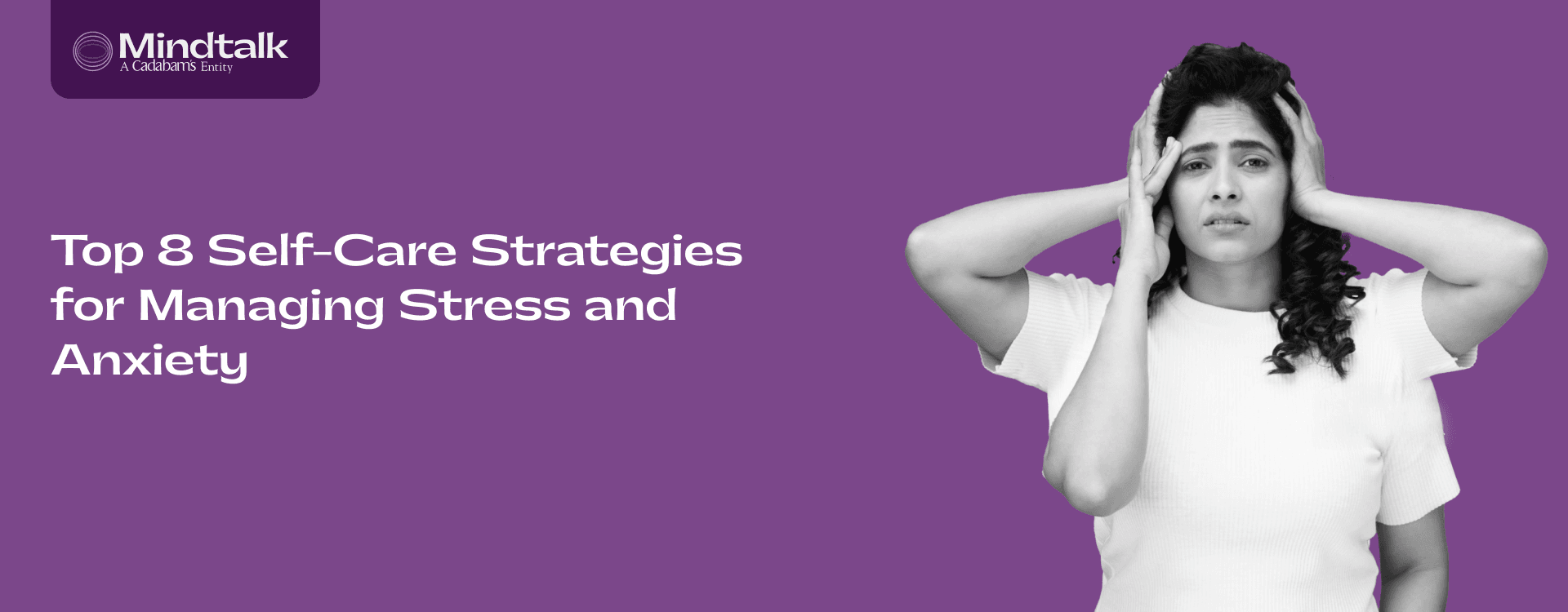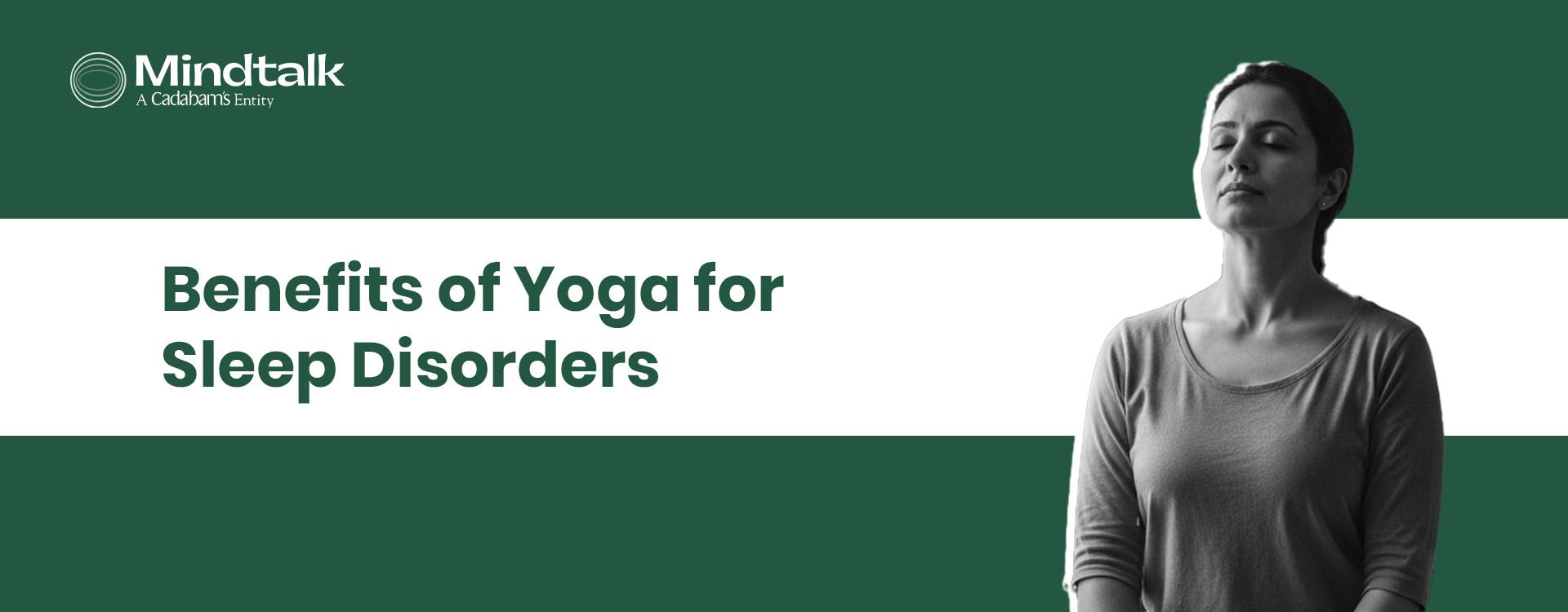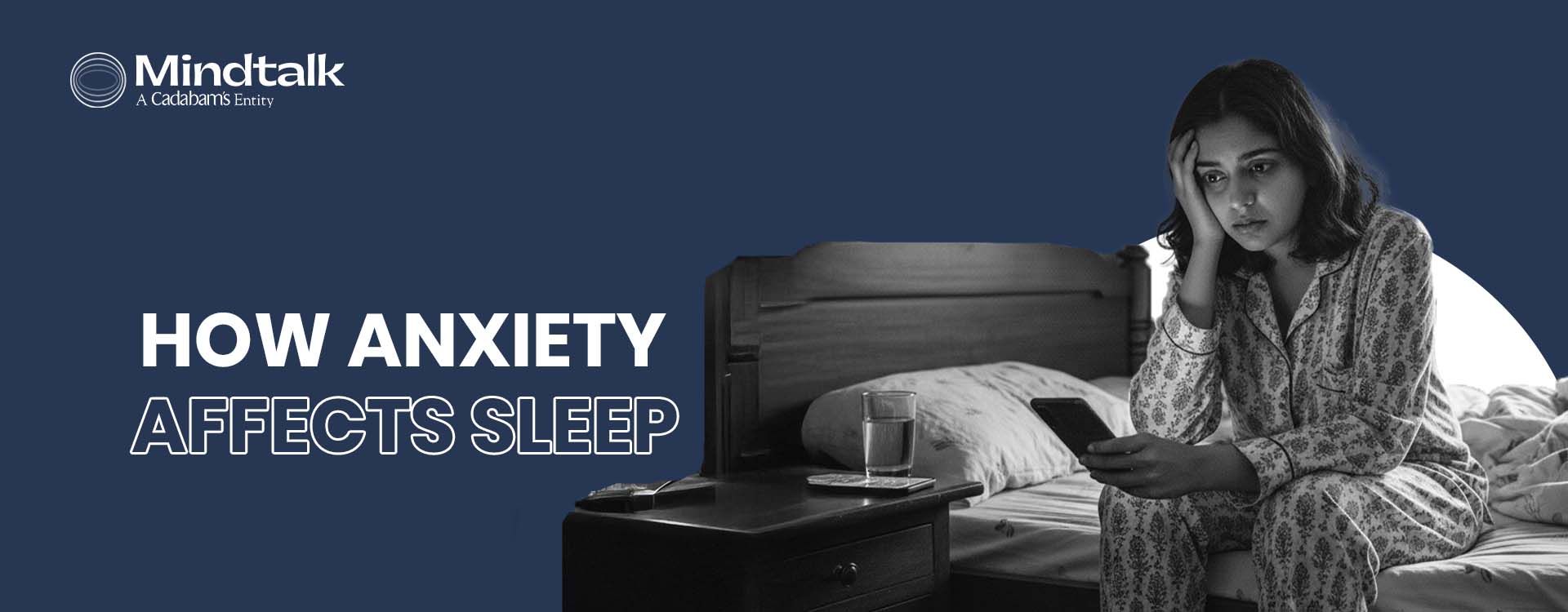Mind Over Mattress: How Anxiety and Overthinking Disrupt Sleep
Overthinking and anxiety can cause significant detrimental effects on one's sleep, including, but not limited to, difficulty falling asleep, difficulty staying asleep, and disrupted sleep. Inadequate sleep worsens anxiety, aggravating the cycle further. Addressing this relationship can help break the cycle. Provided are effective methods for restful sleep.

The Link Between Anxiety and Sleep Disruptions
Increased anxiety and stressful situations can wreak havoc on one's sleep. Heightened stress also leads to worsened cognitive functions, including the ability to sleep and get proper amounts of rest. Addressing anxiety will improve overall restfulness.
Why Anxious Thoughts Intensify at Night
As night falls, distractions quiet down, leading to the brain replaying words and worries. In the absence of distractions, the brain becomes very active, triggering sleep responses and alerting the body. Overactive and repetitive thoughts should not distort sleep and can be avoided through mental focus.
The Role of the Nervous System in Sleep Problems
Stress activates the sympathetic nervous system and keeps the body in a heightened state. This mode delays sleep onset and reduces sleep quality. Relaxation techniques can shift the body along the nervous system continuum to a restful state.
How Chronic Stress Leads to Long-Term Sleep Disorders
Chronic anxiety and stress lead to increased cortisol levels, which disrupts the body's natural circadian rhythm. This may result in chronic insomnia over time. Stress management can restore balance and improve sleep outcomes.
Overthinking at Night: The Racing Mind Phenomenon
Overactive brains prevent relaxation, which is necessary for sleep. Repetitive worries and hypothetical scenarios increase stress, leading to delayed sleep. Mindfulness and cognitive reframing techniques quell herculean thoughts giving way to rest.
How Negative Thought Loops Keep You Awake
Obtrusive thoughts become more persistent during the night. This vicious cycle heightens stress, postpones sleep and becomes worrisome. Relaxation exercises combined with challenging irrational fears can break the pattern and help the mind unwind.
The Psychology of Bedtime Overthinking
The thought processes of the human mind tend to become more active during attempting to sleep due to dwelling on unresolved issues and the natural tendency to reflect. However, reflecting inward on troubling matters has the capability and tendency to cause distressing overthinking.
Breaking the Cycle of Repetitive Thoughts
Rerouting struggling thoughts that sleep better is helpful for cognitive and physical self-care. Sleeplessness can be healed by the use of guided imagery, breathing deeply or thinking mindfully away from the stressful matters, enabling ease of mind.
The Science Behind Anxiety-Induced Insomnia
Management of stress , along with calming the nervous system can alleviate sleeplessness caused due to anxiety , which affects the fever-centred structures of the brain, increasing the amygdala which leads to difficulty within sleep cycles.
The Impact of Cortisol and Adrenaline on Sleep
Hormones that are secreted during stress tend to raise alertness and delay sleep , such as cortisol and adrenaline. However, lowering the rate of those hormones through the application of stress-reducing techniques can promote restful sleep.
Why an Overactive Amygdala Disrupts Rest
The amygdala that is prone to fear-related hyperactive activity, is geared to go into overdrive in times of anxiety. Increased alertness impedes sleep onset and maintenance. Relaxation techniques during a calm period prior to sleep can quiet the amygdala.
How Hyperarousal Makes Deep Sleep Difficult
Chronic fight or flight states prevent deep sleep. Stuck in this state, the body does not change to restorative phases of sleep. Relaxation techniques such as progressive muscle relaxation can alleviate hyperarousal and improve sleep.
How Sleep Deprivation Worsens Anxiety and Mental Health
Reduced sleep increases stress levels and amplifies symptoms of anxiety. Poor sleep impairs emotional control, reasoning and increases susceptibility to mental health issues.
The Vicious Cycle of Poor Sleep and Increased Anxiety
Anxiety causes insomnia, and insomnia leads to intensified anxiety. A continuous cycle of distressing symptoms. Improving sleep hygiene and stress management are necessary to break this cycle and restore wellness.
How Lack of Rest Affects Emotional Regulation
Sleep helps restore emotional equilibrium. Mood swings and decreased impulse control are signs of irritability, which is increased when sleep is inadequate. Good rest helps achieve better emotional control and improved stress management.
The Long-Term Effects of Chronic Sleep Issues on Mental Health
The risk of heightened anxiety, depression, and cognitive deterioration increases with prolonged sleep deprivation. Integrating sleep enhancement strategies into mental health practices can mitigate these repercussions.
How to Calm an Overactive Mind for Better Sleep
Relaxation exercises such as meditation and deep breathing promote sleep by calming racing thoughts. A consistent pre-sleep routine is critical in managing anxiety that heightens at night.
The Power of Mindfulness and Meditation
Stress is countered by the activation of relaxation pathways in the brain due to mindfulness and meditation. Engaging in guided meditation prior to sleep can banish anxious thoughts and usher in restorative slumber.
Writing Down Thoughts to Declutter the Mind
Journaling is a tool that allows individuals to address and work through their feelings while also relieving mental tension. Documenting thoughts eases the mind, creating an effortless shift into sleep.
Progressive Muscle Relaxation and Breathing Techniques
Gradually tightening and loosening muscles conveys relaxation to the brain. Coupled with deep breathing, this method promotes the reduction of tension , which allows for easier sleep attainment.
Creating a Sleep-Inducing Evening Routine
A good bedtime ritual enhances the body's preparation for sleep. Calming activities such as light reading and gentle stretching improve sleep and decrease anxiety when done prior to bedtime.
Why Consistency is Key for an Anxious Brain
Anxiety thrives on unpredictability, making a consistent sleep schedule essential. Going to bed and waking up at the same time daily aids in the maintenance of the body's clock. A stable routine minimises sleep disruptions and enables easier brain relaxation.
How to Build a Relaxing Bedtime Ritual
A well-structured pre-sleep routine helps signal a peripheral engagement with your inner self. Integrate calming self-care such as gentle stretches, reading, or sipping herbal tea. A flowing routine fosters a sense of safety, which assists in easier sleep onset.
The Role of Aromatherapy, Lighting, and Music in Sleep Prep
Sleep hygiene is a multi-sensorial experience embracing smell, vision, and hearing. Relaxation scents, including lavender and chamomile can aid in wind down, while dim light enhances melatonin secretion. Soft or white noise counter distractions, making stimulating brain activity low and easy sleep.
Breaking the Habit of Late-Night Worrying
Anxiety and sleep loss can be more pronounced when overthinking is involved. Thoughts can be organised prior to sleep in the form of jotting notes. Structured exercises or journals can collapse sleeplessness spirals before they start.
The Scheduled Worry Technique to Control Nighttime Anxiety
Worrying within a constrained time frame can help control anxiety. Setting aside a portion of the day to address current problems can also prevent anxious thoughts from taking control at night. Solved problems allow for restful sleep, reduced stress, and issues-free relaxation.
How Cognitive Behavioural Therapy (CBT) Helps Manage Anxious Thoughts
CBT describes techniques such as cognitive restructuring and mindfulness-based CBT , which therefore adapts thoughts to be more accurate rather than negative. These strategies train the mind over time, reducing anxiety, which assists in falling asleep and sleep retention.
Letting Go of Perfectionism and Nighttime Rumination
Perfectionist tendencies result in increased nighttime rumination. Logically, accepting rest sometimes or avoiding tracking sleep can improve insomnia in the long run. Embracing the need for rest without stress enables practitioners to break the pressure cycle and negative self-talk.
The Role of Lifestyle Changes in Managing Sleep Anxiety
Sleep quality is influenced by everyday activities. Physical activity like workouts, proper nutrition, and reduced screen exposure in the evening enhances calming. Minor lifestyle shifts restore the body's natural sleep cycles, lessening insomnia triggered by anxiety.
The Importance of Physical Activity and Fresh Air
Sunlight exposure alongside movement during the day promotes deeper sleep at night. Light physical activities like walking or yoga lower stress hormones, enhancing sleep quality so that restlessness during the night caused by excessive thinking is minimised.
How Diet Influences Sleep and Mental Health
Certain nutrients are critical to the regulation of sleep. Foods containing high levels of magnesium, like almonds and bananas, facilitate calmness, while sugar and high levels of caffeine can induce anxiety. A balanced diet also helps the body produce melatonin, supporting effortless sleep.
Reducing Caffeine and Alcohol for Better Sleep Quality
Caffeine use makes it difficult to unwind because of its stimulant properties while alcohol reduces REM sleep, increasing rest inefficiency. Cutting back on these stimulants, particularly in the evening, can improve sleep consistency and reduce anxious nighttime awakenings.
How to Know When to Seek Professional Help
For persistent sleep problems, changes in lifestyle might no longer suffice. Therapies such as sleep medicine or evaluations may uncover hidden problems and offer tailored strategies to manage long-term sleep anxiety.
Signs That Anxiety-Related Sleep Issues Need Intervention
Sleep that leads to energy depletion or chronic anxiety, along with mood fluctuations, can signal the need for expert intervention. Furthermore, recurring nightmares or panic onset during sleep signifies deeper troubles that may need therapeutic, medicinal, or specially designed sleep interventions.
Therapy and Medication Options for Severe Sleep Anxiety
Cognitive behavioural therapy for insomnia (CBT-I) is helpful in managing sleep anxiety. In extreme cases, a small dose of medication may be offered to readjust sleep cycles. Psychiatrists or sleep doctors can offer tailored strategies according to personal requirements.
How Sleep Specialists Can Help Reset Sleep Patterns
Sleep doctors can evaluate sleep disorders, providing behavioural guidelines and medication. Other treatments like light relaxation or even therapy can also be recommended. Clinics tailor more comprehensive strategies for severe disorders focused on recovering sound sleep.
Take Control of Your Mind for Restful Sleep with Mindtalk
Here at Mindtalk, our professionals know that anxiety influences your sleep. We provide therapies such as mental rituals and relaxation therapy, which can help free you from repeating cycles of sleepless nights. Reach out to us and embark on the journey of a sound sleep since a restful mind is a healthier mind.
Meet Our Anxiety Professionals




